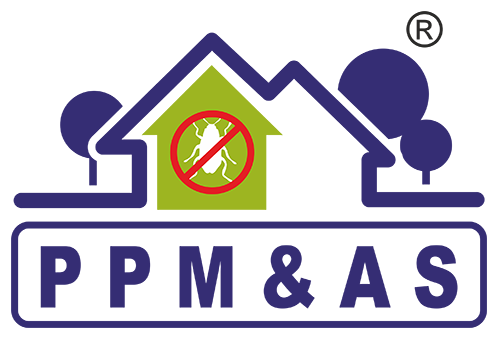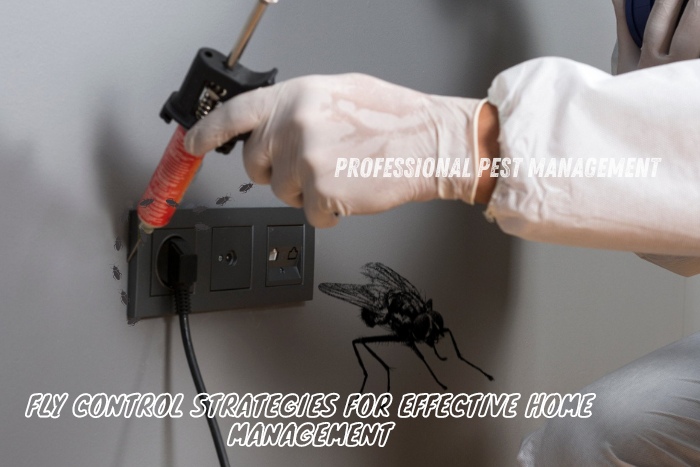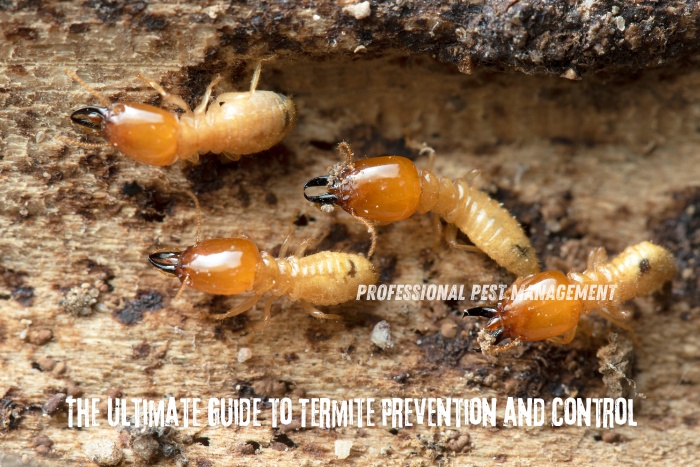Introduction
Flies are more than just an annoyance. They can also be carriers of various diseases, making them a significant health hazard in your home. City like Chennai, where the warm climate can exacerbate fly problems, effective fly control strategies are essential for maintaining a healthy and comfortable living environment. At Professional Pest Management, we understand the challenges that come with keeping your home fly-free. This comprehensive guide will provide you with practical, proven strategies to manage and control fly populations effectively.
Understanding Flies and Their Behavior
To battle flies effectively, it’s essential to understand their behavior and lifecycle:
Types of Flies: The most common household flies include house flies, fruit flies, and drain flies. Each type has unique characteristics and preferred breeding sites.
Breeding Habits: Flies reproduce rapidly. For example, house flies lay eggs in decaying organic matter, fruit flies are attracted to fermenting fruits, and drain flies breed in stagnant water.
Lifespan and Development: A fly’s lifecycle includes four stages: egg, larva, pupa, and adult. Understanding this lifecycle is crucial for effective control.
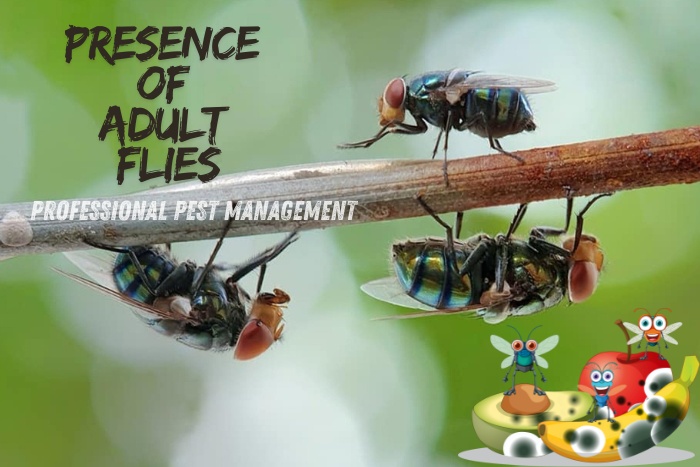
Identifying Fly Infestations
Early detection of a fly infestation can prevent it from becoming a more significant problem. Here are some signs to look for:
Presence of Adult Flies: Seeing adult flies around your home, especially near windows, doors, or food sources, is a clear sign of an infestation.
Larvae or Maggots: Finding maggots in areas with decaying organic matter indicates a breeding site.
Fly Specks: Small dark spots, known as fly specks, are fly excrement and can be found on walls, ceilings, and other surfaces.
Preventive Measures
Preventing flies from entering your home is the first step in effective fly control. Here are some strategies:
Sanitation: Keep your home clean, especially kitchen areas. Regularly dispose of garbage and ensure trash boxes are closed.
Food Storage: Store food in airtight containers and avoid leaving food out for extended periods.
Exclusion: Use screens on windows and doors to prevent flies from entering. Repair any tears or gaps in screens.
Drain Maintenance: Regularly clean drains to remove organic buildup that can attract drain flies.
Natural Fly Control Methods
For those who prefer eco-friendly solutions, natural fly control methods can be highly effective:
Essential Oils: Flies are repelled by certain essential oils, such as eucalyptus, lavender, and peppermint. Use these oils in diffusers or spray solutions around your home.
Vinegar Traps: For fruit flies, place a mixture of vinegar and a few drops of dish soap in a bowl. The flies will be attracted to the vinegar and trapped by the soap.
Herbs: Planting herbs like basil, mint, and marigolds around your home can deter flies due to their strong scents.
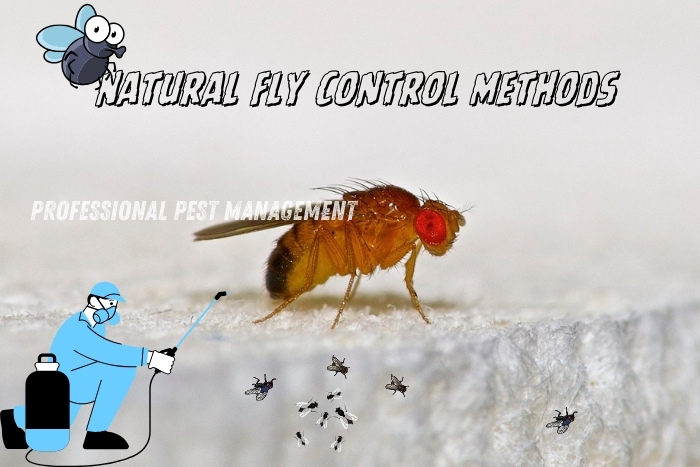
DIY Fly Control Solutions
Several do-it-yourself solutions can help manage fly populations:
Fly Paper: Sticky fly paper traps flies when they land on it. Place these traps in areas where flies are most active.
Light Traps: Ultraviolet light traps attract flies and trap them on a sticky surface or in a container.
Homemade Sprays: A mixture of water, vinegar, and essential oils can be used as a natural fly repellent spray.
Professional Fly Control Services
When an infestation becomes too severe for DIY methods, professional pest control services are necessary:
Inspection and Assessment: Professional pest control companies, like Professional Pest Management, will conduct a thorough inspection to identify the source and extent of the infestation.
Targeted Treatments: Professionals use targeted treatments that are safe and effective, including insecticidal sprays and baits designed specifically for flies.
Ongoing Monitoring: Regular monitoring and follow-up treatments ensure that the fly problem is kept under control and does not return.
Maintaining a Fly-Free Home
Consistent maintenance and preventive measures are key to keeping flies at bay:
Regular Cleaning: Maintain a rigorous cleaning schedule, especially in kitchens and bathrooms where flies are likely to breed.
Proper Waste Management: Ensure that all waste is disposed of promptly and that trash bins are cleaned regularly.
Check for Entry Points: Regularly inspect your home for potential entry points and close any cracks or gaps.
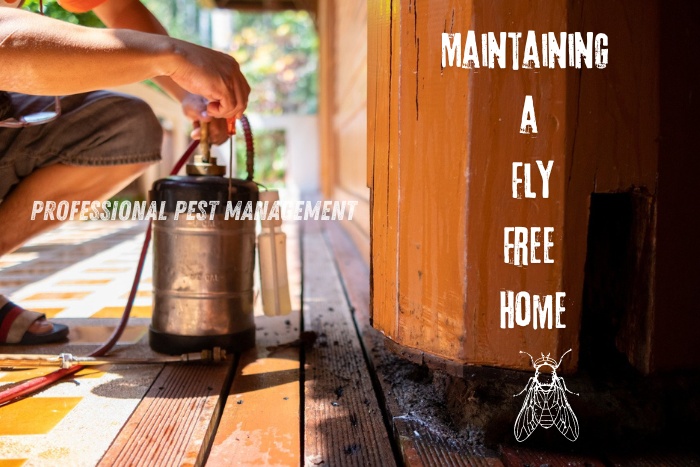
Conclusion
Flies can be a persistent and frustrating problem, but with the right strategies, you can keep them under control. From natural remedies to professional treatments, there are numerous ways to manage and prevent fly infestations effectively. At Professional Pest Management, we’re committed to helping Chennai residents maintain fly-free homes through expert advice and services.
By implementing these fly control strategies and maintaining good hygiene practices, you can ensure a healthy, comfortable living environment for you and your family.
